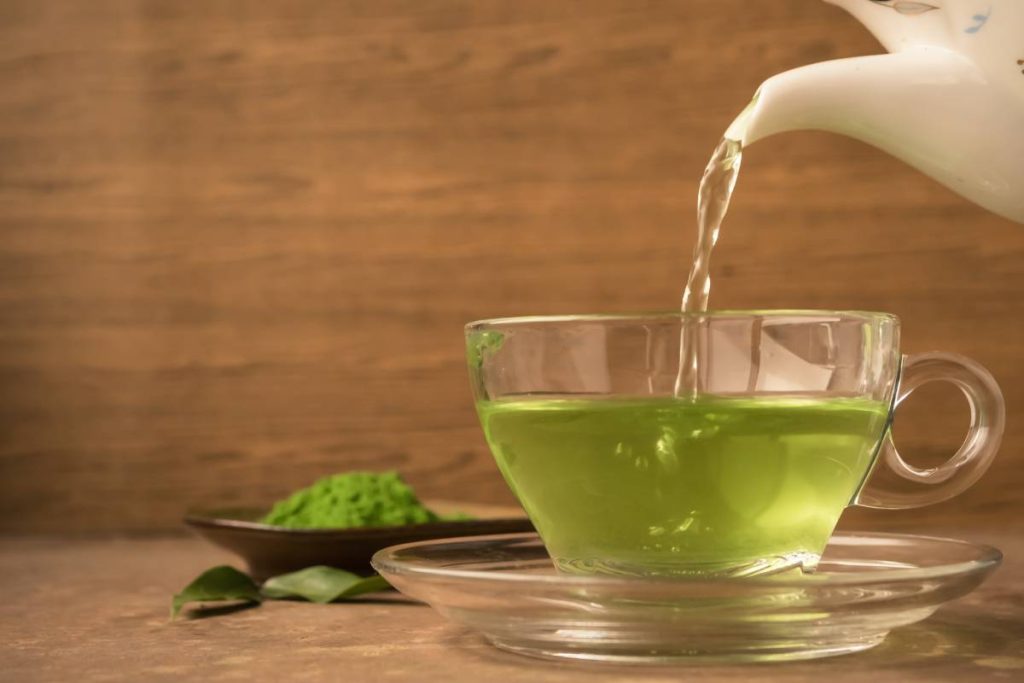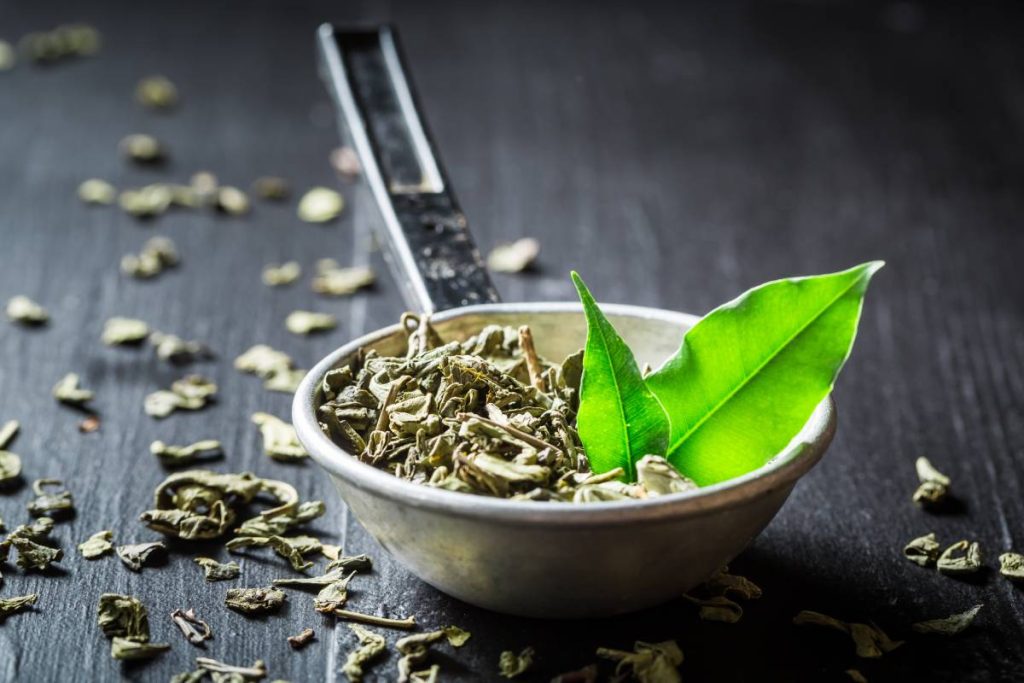Green tea, often celebrated for its health benefits, is a popular beverage with potential perks related to weight management and overall well-being. Exploring when and how to consume it can provide valuable insights for individuals seeking to harness its advantages.

When not to drink green tea?
Green tea is generally a healthy beverage, but there are certain situations when it’s advisable to avoid it. One such instance is during pregnancy. Pregnant women should limit their green tea intake due to its caffeine content, which may negatively impact fetal development. It’s wise to consult with a healthcare professional to determine the safe amount during this period.
Similarly, individuals with iron deficiency should exercise caution. Green tea contains tannins that can hinder iron absorption. If you’re prone to anemia or have low iron levels, it’s recommended to consume green tea between meals to minimize this potential interference.
Those sensitive to caffeine should be mindful. While green tea has less caffeine than coffee, it can still cause issues for some people. If you’re susceptible to caffeine-related side effects like insomnia or increased heart rate, moderating your green tea consumption is advisable.
Timing matters for those taking certain medications. Green tea can interact with medications, affecting their efficacy. To avoid potential complications, it’s essential to consult your healthcare provider about any possible interactions and adjust your tea consumption accordingly.
For individuals with digestive issues, particularly acid reflux or ulcers, caution is warranted. Green tea may exacerbate these conditions due to its acidic nature. If you experience discomfort after drinking green tea, it’s prudent to limit or avoid it, especially on an empty stomach.
People undergoing certain medical treatments, such as chemotherapy, should also be cautious. Green tea’s antioxidants, while generally beneficial, may interfere with specific treatments. It’s crucial to discuss this with your healthcare team to ensure your tea habits align with your treatment plan.
Lastly, if you’re trying to conceive, consider your green tea intake. Excessive consumption may impact fertility. While moderate consumption is generally safe, it’s wise to be mindful of your tea habits when planning for pregnancy.
In summary, while green tea offers numerous health benefits, there are situations where caution is advised. Pregnant women, those with iron deficiency, caffeine sensitivity, individuals on specific medications, people with digestive issues, and those undergoing certain medical treatments should tailor their green tea consumption to their unique circumstances. Always consult with healthcare professionals for personalized advice.

Is it OK to drink green tea in night?
Yes, drinking green tea at night is generally fine for most people. Green tea contains less caffeine than coffee, making it a suitable evening choice for those sensitive to caffeine. However, individual responses to caffeine vary, so it’s essential to listen to your body and adjust accordingly.
For those prone to insomnia or sleep disturbances, it might be wise to limit green tea consumption in the hours leading up to bedtime. Caffeine can interfere with sleep, so consider enjoying your last cup in the early evening to allow sufficient time for its effects to wear off.
If you’re concerned about the caffeine content, opt for decaffeinated green tea. Decaffeinated versions are available and provide a lower-caffeine alternative without compromising the tea’s health benefits.
Moreover, consider the potential impact on iron absorption. If you’re consuming green tea with meals, especially those rich in iron, it could inhibit the absorption of this essential mineral. To mitigate this, spacing out your green tea consumption from meals may be beneficial.
Additionally, be mindful of any digestive discomfort. Some individuals may experience acid reflux or stomach issues after drinking green tea. If this applies to you, adjusting the timing of your tea consumption or opting for a gentler variety may help.
In conclusion, drinking green tea at night is generally okay, given its lower caffeine content compared to coffee. However, individual tolerance varies, so pay attention to how it affects your sleep. Consider decaffeinated options if you’re particularly sensitive to caffeine. Be aware of potential interactions with iron absorption and digestive issues, adjusting your tea habits accordingly. Ultimately, moderation and attentiveness to your body’s signals are key when enjoying green tea in the evening.

Does green tea burn belly fat?
Green tea is often touted for its potential to aid in weight loss, specifically targeting belly fat. While it’s not a magical solution, there is evidence to suggest that green tea may have some beneficial effects on body composition.
One key factor is the presence of catechins, which are potent antioxidants found in green tea. Catechins, particularly epigallocatechin gallate (EGCG), have been studied for their potential to boost metabolism and increase fat burning. However, it’s important to note that the effects are modest and can vary among individuals.
Green tea may enhance fat oxidation during exercise, promoting the utilization of fat as an energy source. This can be beneficial for those engaging in physical activity as part of their weight loss journey.
Moreover, green tea has been associated with a reduction in visceral fat, the fat stored around internal organs in the abdominal cavity. High levels of visceral fat are linked to various health issues, and its reduction can contribute to a healthier body composition.
It’s essential to manage expectations, though. While green tea may offer some support in weight loss efforts, it’s not a substitute for a balanced diet and regular exercise. A holistic approach, including a healthy lifestyle, is crucial for sustainable and effective weight management.
Incorporating green tea into your routine may be a helpful addition, but it’s not a standalone solution. Drinking it alongside a nutritious diet and an active lifestyle can contribute to overall well-being.
Additionally, be mindful of added sugars in green tea products, such as pre-packaged bottled versions. Excessive sugar intake can counteract the potential benefits of green tea. Opting for unsweetened varieties or brewing your own tea allows you to control sugar content.
Individual responses to green tea can vary. Some people may experience more noticeable effects than others. It’s essential to pay attention to your body and make adjustments based on how it responds.
In conclusion, while green tea may have some positive effects on metabolism, fat burning, and the reduction of visceral fat, it’s not a miraculous solution for melting away belly fat. It can be a valuable component of a comprehensive weight loss strategy when combined with a healthy diet and regular exercise. As with any dietary changes, it’s wise to consult with a healthcare professional for personalized advice.

Conclusion:
In summary, green tea can be a beneficial addition to a healthy lifestyle, potentially aiding in weight management and offering antioxidant benefits. Moderation and individual awareness are key. As with any dietary considerations, consulting with healthcare professionals ensures a personalized and informed approach to optimizing the benefits of green tea.




















